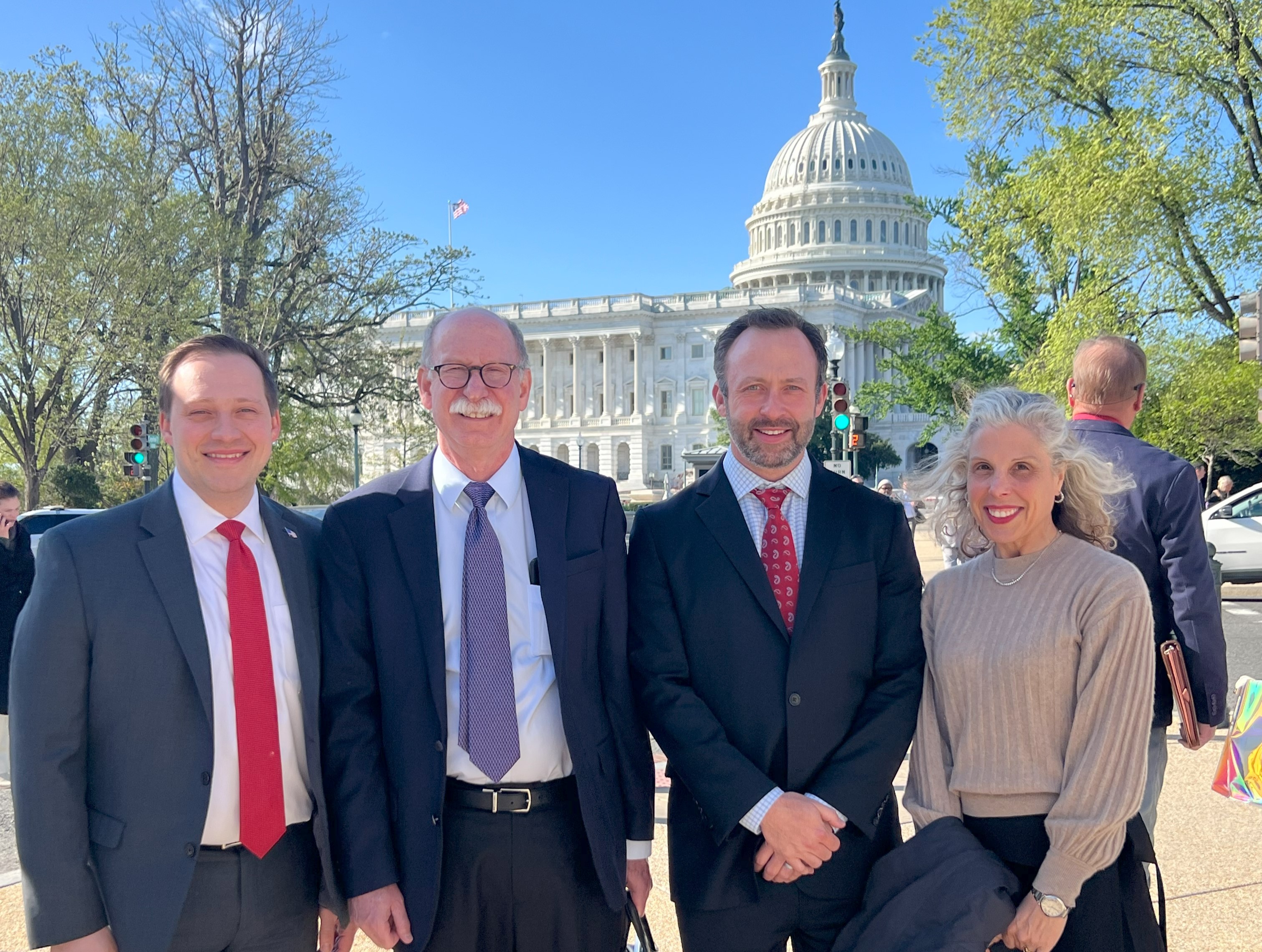Promote Patient Access and Expanded CarePromoting Access to Cancer Therapy via Medicare Part B and D:Payment Uncertainty Challenges One of the significant challenges faced by physicians providing care to Medicare beneficiaries is payment uncertainty. Payment delays can lead to revenue loss or increased costs for physicians, impacting their willingness to serve publicly insured patients. Impact on Independent Practices Medicare providers already contend with low reimbursement levels that fall behind the Medical Economic Index (MEI). Between 2001 and 2023, after adjusting for inflation, Medicare payments to physicians declined by 26%, while the costs of running a medical practice increased by 47%. These trends have made it challenging for independent, small, rural, and low-income serving practices to remain operational. LUGPA's Advocacy for Medicare Physician Payments LUGPA’s recent advocacy efforts include six significant reforms:
Maintaining Access to Cancer Therapy LUGPA advocates for maintaining access to cancer therapy via Medicare Part B and Part D. Physician practices administering Part B drugs should not be at risk due to pricing decisions by manufacturers. Congress can achieve savings without disrupting the buy-and-bill reimbursement system by collecting rebates directly from pharmaceutical manufacturers.
Statutory Restoration of In-Office Dispensing of Part D MedicationsImportance of Patient Compliance Efficacious care depends on patient compliance with prescribed medications. Between 20 to 31% of drug prescriptions are never filled, leading to increased healthcare costs and adverse health impacts. In-office dispensing can improve patient access, care coordination, and compliance monitoring. Effectiveness of Physician Dispensing Physician dispensing, permitted in most states, enhances care coordination and patient adherence. A 2021 study found no significant differences in clinical outcomes between physician- and pharmacist-dispensing, highlighting the benefits of in-office dispensing. Challenges from CMS FAQ In 2021, CMS released a FAQ limiting in-office dispensing, which could negatively affect access to prescription medications. LUGPA advocates for the rescission of this FAQ to protect access to life-saving treatments. Ensuring Continued Access to Cancer Therapy Through Medicare LUGPA supports efforts to ensure that physician practices are not negatively impacted by manufacturers' pricing decisions for Medicare Part B and Part D therapies. Advocating for molecular urine testing and diagnostic genetic testing for prostate cancer aligns with LUGPA's mission to provide high-quality, individualized care.
Supporting Healthcare Price Transparency
Federal Rules on Price Transparency LUGPA supports healthcare price transparency, which is essential for patients managing their healthcare expenses. Federal rules CMS-1717-F2 and CMS-9915-F require hospitals and payors to post pricing information online, but compliance has been low.
LUGPA’s Recommendations LUGPA has submitted testimony to the House Energy & Commerce Health Subcommittee, calling for:
LUGPA remains committed to working with other organizations to improve patient access to high-quality care at lower costs, promote communication and coordination, and enhance healthcare price transparency.
LUGPA’S ACTIONS AND RESOURCESLUGPA Policy Update: Seniors’ Access to Critical Medications Act - March 2025 LUGPA Policy Brief: The Delinking Revenue from Unfair Gouging (DRUG) Act - March 2025 LUGPA Policy Brief - Executive Order on Healthcare Price Transparency - March 2025 LUGPA Policy Brief: Strengthening Hospital Price Transparency - March 2025 LUGPA Policy Brief: The Preserving Patient Access to Accountable Care Act - Feb. 2025 LUGPA Policy Update: Prior Authorization Reform - Feb. 2025 LUGPA Policy Update: Advancing AI Policy in Healthcare - February 2025 LUGPA Policy Update: FTC’s New Report on PBM Practices - January 2025 LUGPA Policy Alert - Regulatory Freeze Impacts HHS Rulemaking - Jan. 2025 LUGPA Policy Brief - The Threat of Tax Reform to Nonprofit Organizations - January 2025 Driving Change for Independent Practices at Third Community Practice Summit - January 2025 LUGPA Policy Update - Medicare Drug Price Negotiation and Xtandi - January 17, 2025 LUGPA Policy Brief - Addressing the Physician and Urology Workforce Shortage - Jan. 20, 2025 LUGPA Policy Brief - Insurers May Face PBM Divestment Under Proposed Legislation - December 11, 2024 LUGPA Policy Update - CMS Releases Guidance for Second Round of Medicare Drug Price Negotiation Program - October 2, 2024 LUGPA Policy Brief - Addressing Medical Transportation Challenges and In-Office Dispensing Reforms - Oct. 31, 2024 LUGPA Policy Brief: Strengthening Healthcare Supply Chains for Independent Providers - Oct. 2024 LUGPA Policy Update: Initiative to Alleviate Medical Debt LUGPA Policy Brief - Drug Patent Reform - Oct. 2024 LUGPA Policy Brief: Prior Authorization Reform - State and Federal Efforts - Oct. 2024 LUGPA Policy Update: Effectiveness of the No Surprises Act - Sept. 2024 LUGPA Submits Comprehensive Feedback on CY 2025 MPFS and OPPS Proposed Rules, Advocating for Independent Urology Practices - Sept. 2024 LUGPA Policy Overview - Pharmacy Benefit Manager Reform in 2024 - Aug. 19, 2024 LUGPA Policy Update: Supreme Court Overturns Chevron Deference - Aug. 19, 2024 LUGPA Policy Update - CMS Announces Negotiated Drug Prices under the Inflation Reduction Act- Aug. 15, 2024 LUGPA Board Member Testifies on Hospital Consolidations, Acquisitions - May 2024 In-Office Dispensing Policy Brief - May 2023 LUGPA Policy Brief: Seniors' Access to Critical Medications Act - October 2023
Flexible Reimbursement Models and Site-Neutral Payment Reform - June 2024 Enhancing Value-Based Care Adoption through Federal Legislation - September 7, 2023 Update: Site-Neutral Payment Reform - June 2023 Healthcare Price Transparency Update - May 2023 LUGPA Policy Update: The Lower Costs, More Transparency Act - Dec. 18, 2023 Policy Brief: Addressing Hidden Fees for Doctors in Health Care Payments- Aug. 2023 LUGPA Policy Brief: Prescription Drug Distribution and Drug Costs - August 2023 LUGPA Policy Brief: The Modernizing and Ensuring PBM Accountability (MEPA) Act - Nov. 2023 LUGPA Policy Update on the 340B Program - Feb. 2024 LUGPA Policy on Prior Authorizations - 2023 Prior Authorization Reform and the GOLD Card Act - Dec. 18, 2023
|




